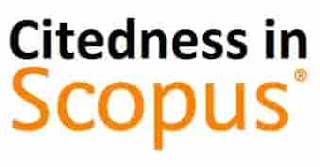Knowledge Expansion in Engineering Education: Engineering Technology as an Alternative
DOI:
https://doi.org/10.12695/ajtm.2015.8.1.4Abstract
Abstract. The current and rising challenges in engineering education demand graduate engineers who are well-prepared to provide innovative solutions as technical specialists, system integrators and change agents. Realizing the importance of producing a highly competent manpower, the Malaysian Government has put considerable pressure to the universities to produce engineers who are competitive in the global market. Hence, this assignment of developing a highly competence engineering technologist workforce in support of the government policy highlights issues pertaining to the development and offering of practical-oriented programs as a knowledge expansion in engineering education at universities as envisioned by the Malaysian Government. This paper evaluates the current scenario and examines the application-oriented programs of engineering technology education as practice in local institutions in Malaysia in comparisons to some universities abroad. It also investigates the challenges faced by university management in dealing with issues concerning national quality assurance and accreditation pertaining to the engineering technology education programs. Specifically, it analyzes the faculty planning of pedagogies in term of hands-on skills in teaching and learning. A key conclusion of this research is that Malaysian universities need to evaluate its engineering technology education strategies if they aim for quality assurance and accreditation to be established and aspire for successful attempts towards the creation of the requisite knowledge workers that Malaysia needs.
Keywords: application-oriented, engineering education, engineering technology, hands-on skills, knowledge expansion
Â
Downloads
References
ABET. (2002). Accreditation Board for Engineering and Technology (ABET) Criteria for Accreditation Engineering Program. http://www.abet.org.
Adams, R. S., & Felder, R. M. (2008). Reframing Professional Development: A System Approach to Preparing Engineering Educators to Educate Tomorrow's Engineers. Journal of Engineering Education.
BEM. (2003). The Engineering, Technology Path Blueprint for a highly competent engineering, technical workforce. Federation of Engineering Institution of Islamic Countries: Institution of Engineers Malaysia, Board of Engineers Malaysia.
Cheshier, S. R. (1985). A Modest Proposal Regarding the Future of Engineering Technology Education in America. Engineering Education, 75(8), 706-712.
Chowdhurya, H., Alama, F., Biswasb, S. K., Islamb, M. T., & Islamc, A. K. M. S. (2013). Quality Assurance and Accreditation of Engineering Education in Bangladesh. Procedia Engineering: 5th BSME International Conference on Thermal Engineering, 56, 864–869.
Danielson, S., Hawks, V., & Hartin, J. (2006). Engineering Technology in an Era of Globalization.36th ASEE/IEEE Frontiers in Education Conference, S1C-20 - S21C-25.
EAC. (1999). Manual for Accreditation of Engineering Program. Malaysia: Engineering Accreditation Council.
EPU. (2012). The Malaysian Economy in Figure 2012 Malaysian Economic Planning Unit. Department of Prime Minister: http://www.epu.gov.my/en/the-malaysian-economy-in-figures-2012.
Grip, A. d. (2004). Evaluating Human Capital Obsolescence Seminar on Human Capital and Labour Market Performance. Brussels, Netherlands: Maastricht University.
IEA. (2014). The Institution of Engineers Australia: Engineering Technology Programs Accredited by Engineers Australia Programs at the level of Engineering Technologist accredited by Engineers Australia https://www.engineersaustralia.org.au/.
Ismail, A., & Abidin, N. Z. (2014). Issues and challenges of Technical and Vocational Education and Training in Malaysia Towards Human Capital Development. Middle-East Journal of Scientific Research, 19 (Innovation in Multidisciplinary Research and Practice), 7-11.
Ismail, K., & Puteh, M. (2008). Engineering Technology: A Malaysian Case. Paper presented at the International Conference in Engineering Education, Budapest.
Kehm, B. M. (2006). The German System of Accreditation. Public Policy for Academic Quality Research Program.
Kulacki, F. A., & Krueger, E. R. (1998). Trends in Engineering Education--An International Perspective. Paper presented at the Annual Meeting of the International Conference on Engineering Education, Rio de Janeiro, Brazil.
Megat Johari, M. (1999). Malaysian Engineering Education Model for the Next Milleneum Design For Developing Countries. Paper presented at the Colloquium on the Malaysian Engineering Education Model for the Next Millennium, Putrajaya, Malaysia.
Megat Johari, M. (2009). A scheme for Engineering Technologists? Engineering Education in Malaysia, http://megatjohari-eac.tumblr.com/post/203362140.
MOHE. (2006). The Future of Engineering Education in Malaysia. Putrajaya: Ministry of Higher Education Malaysia Departmental Report.
MQA. (2011). The Quality Assurance System of Malaysian Higher Education Malaysian Qualifications Agency. Putrajaya: Ministry of Education.
MQF. (2010). Malaysian Qualification Framework. Ministry of Higher Education (MOHE) Malaysia: Quality Assurance Division.
Mraz, S. (2015). Engineering: The Key to Untold Riches? http://machinedesign.com/blog/engineering-key-untold-riches.
Nor, N. M., Rajab, N., & Ismail, K. M. (2008). Educating the Engineer of 2020: Malaysian Scenario. Paper presented at the Internation Conference on Engineering Education 2008 (ICEE 2008), Budapest.
UCF. (2005). Spectrum of Engineering Technology and Engineering Jobs and Job Functions in Industry Prospectus of University of Central Florida. University of Central Florida
Downloads
Submitted
Accepted
How to Cite
Issue
Section
License

This work is licensed under a Creative Commons Attribution-NonCommercial-ShareAlike 4.0 International License. Copyright @2017. This is an open-access article distributed under the terms of the Creative Commons Attribution-NonCommercial-ShareAlike 4.0 International License (http://creativecommons.org/licenses/by-nc-sa/4.0/) which permits unrestricted non-commercial used, distribution and reproduction in any medium











